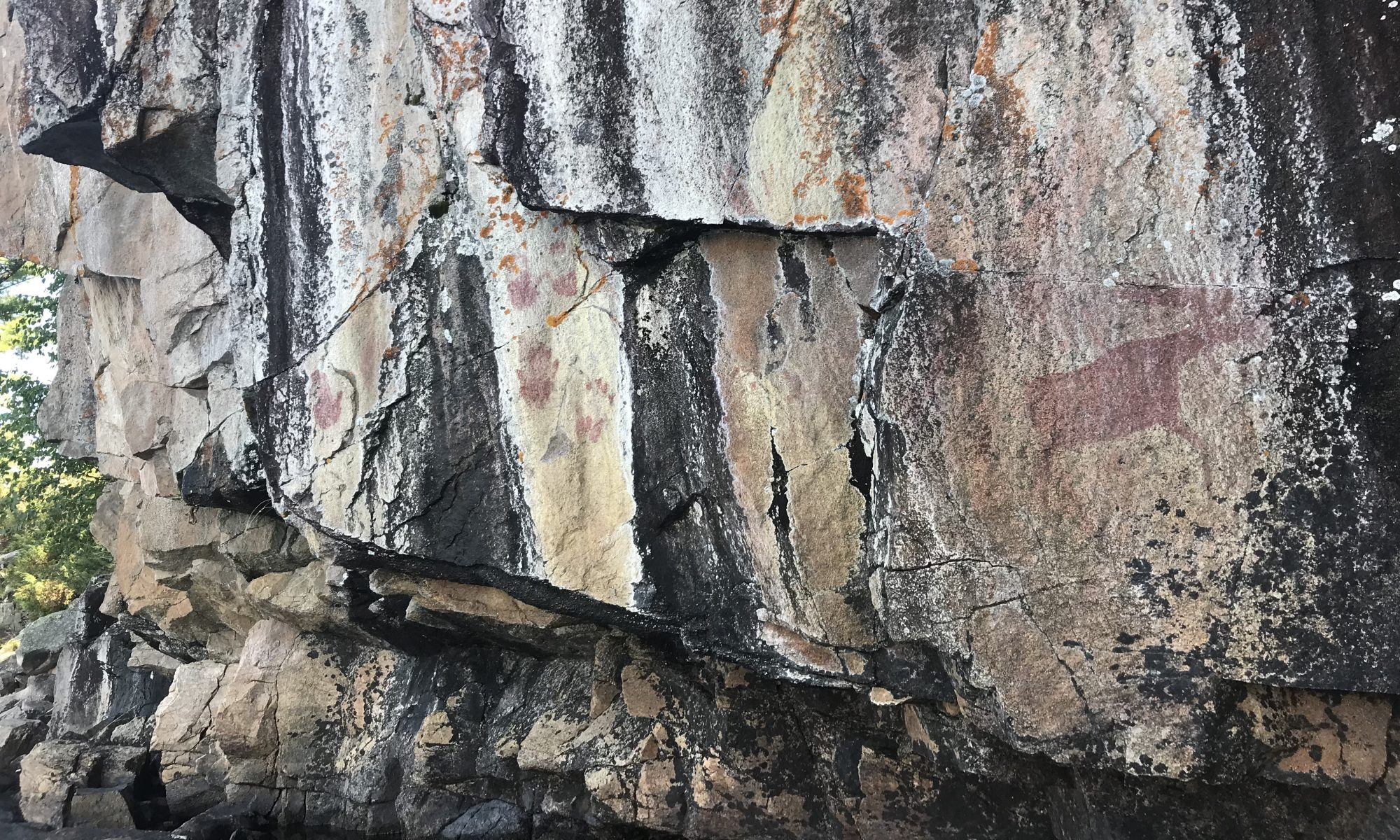In The Truth about Stories, King tells two creation stories, the story of “The Earth Diver”, and the story of “Genesis”. King tells the stories in two different manners, the story of “Genesis” in a very authoritative voice, and “The Earth Diver” in a story telling manner. I believe the clearest, and probably least controversial reason for him creating these dichotomies is because these were the ways in which they were meant to be, and originally told. Genesis was originally written in an authoritative way. The beginning reads:
[1:1] In the beginning when God created the heavens and the earth,
[1:2] the earth was a formless void and darkness covered the face of the deep, while a wind from God swept over the face of the waters.
[1:3] Then God said, “Let there be light”; and there was light.
Keeping in mind this is even a translation, the originally text is in Hebrew, which was even shorter and more to the point. There are no questions as to how this is written, and to what events had transpired, it is very clear, it is very simple, and most importantly, there is no way to argue it.
On the other hand, King tells the story of Charm and the twins in a more storyteller tone, as again, that was the original intention. As King wrote:
Back at the beginning of imagination, the world we know as earth was nothing but water, while above the earth, somewhere in space, was a larger, more ancient world. And on that world was a woman.
A crazy woman.
Well, she wasn’t exactly crazy. She was more nosy. Curious. The kind of curious that doesn’t give up. The kind that follows you around. Now, we all know that being curious is healthy, but being curious can get you into trouble
….
Now before we go any further, we should give this woman a name so we don’t have to keep calling her “the woman.” How about Blanche? Catherine? Thelma? Okay, I know expressing an opinion can be embarrassing. So let’s do it the way we always do it and let someone else make the decision for us. Someone we trust. Someone who will promise to lower taxes. Someone like me.
I say we call her Charm. Don’t worry. We can change it later on if we want to.
This tone is engaging and fun and makes you want to keep reading, however it is not authoritative because the language used is not. “And on that world was a woman. A crazy woman. Well, she wasn’t exactly crazy”. Not only is King’s writing casual, replicating the casual tone of voice of a storyteller, however, the story second guesses itself by saying she’s crazy then saying she’s not exactly crazy, immediately afterwards. This makes the story less authoritative — however much more engaging to read and listen to.
This uncommitted and questioning tone and language continues as he names the woman. He throws out a few names, “How about Blanche? Catherine? Thelma?” and then continues to speak/write colloquially until he concludes with “I say we call her Charm. Don’t worry. We can change it later on if we want to.” Which is again doubting and non-committed. On the other hand, the narrator in Genesis only mentions the name Adam five times, and never ‘names’ him Adam, they simply just beggin to refer to man as Adam in chapter four. Similarity Eve is only named twice, once when Adam names her, and the other where she gives both to her son. (We can go into a religion class and talk about as to why she is only named in reference to the men in her life for hours, however this is neither the time nor place, but I personally needed to point this out regardless) There is no hesitation, no participation with the reader/listener, these are the events, these were the people they happened to. Simple as that.
So in asking why does King create these dichotomies, I would argue that he doesn’t, the stories create them themselves. I don’t believe that he necessarily emphasizes the believability of one story above the next, he tells the stories in the ways they were initially meant to be heard, and based on King’s readers, myself included, our biases make Genesis more ‘believable’ because I am taught to believe an authoritative voice, a text book or news article, and not a stylized piece, being a book or op-ed.
King is further trying to appeal to our biases as the reader in regards to the story’s believability in creating the opposing dichotomies of a world created through competition or co-operation. It is easier to see the world being created in the same way in which we we our work today. The Western World is VERY competitive and capitalistic, therefore showcasing the “Genesis” story of one made out of competition is more believable as that is the way in which we know the world today.
King provides us with this comparison as I believe that he is trying to show us this bias towards authoritative written stories. He is trying to prove that we automatically believe written stories — being authoritative facts and actions, above oral stories — a colloquial conversation.
—
Changing pace a little, the first question that Professor Patterson posed said: “you can only believe ONE of the stories is the true story of creation – right?”. I believe this is wrong. As I have mentioned in previous blog posts, I grew up in a Jewish house and attended Jewish schools from grades K-12. In Tanach (Jewish Bible) class in grade 10 we were relearning the story of Genesis — you learn each story multiple times as at each age you learn something new from the stories. By this age, speaking to a classroom filled with teenagers that are planning on being doctors and scientists, it is hard to sell a creation story in which god dictates the story. So my teacher devoted a lot of his lessons on the book of Genesis to teaching us how this story can fit into science of evolution. The one example which I always thought was very clever — which is proven because I remember it from my grade 10 class, was from the story in which Eve ate the apple. As the story is told, Eve is persuaded from the snake to eat the apple, and once she did and all was found out, his punishment was for the snake to lose his legs. The story my teacher told was that Eve was actually persuaded by a dinosaur and him loosing his legs turned him into an alligator. I mean it is still very much a story, however it incorporates scientific facts that dinosaurs existed that are not expressed explicitly in the bible. It wasn’t much, but it filled a gap.
I think it is hard to believe more than one creation story, because upfront they are all very different and yes, everyone feels very strongly the way in which they believe. However each of the stories are telling the same story about how we have come to be. Therefore they are all very much the same, and as my teacher showed my class, there are ways in which you can intertwine the stories together allowing more than one to be true


